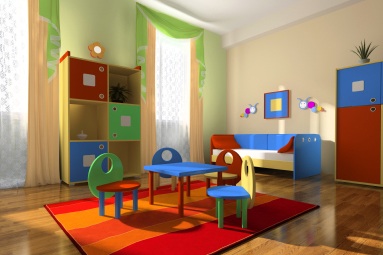Monday morning, 9 am, time to get to work. As you hastily down a sandwich, your three-year-old daughter rushes toward you. You know what’s going to happen next. As you sit with her, talking to her about all the interesting things that she will do during the day, she lets out a scream and begins to cry. The moment she has quietened down a bit, you call the caregiver and slowly slip out.
You might turn around and ask, but what other way is there? Well, for starters, you could teach your child how to happily say bye and thereby deal with separation anxiety.
Young children often don’t like to be separated from their parents, but they need to learn to say goodbye. Babies manifest separation anxiety in different ways like going into depression, loss of appetite, being unresponsive to known and unknown people.
And when you return, all her pent-up anxiety comes out. She clings to you. She may cry out in alarm whenever you move out of her sight even if it’s into the next room. At bedtime, she may wrap herself so tightly around you that you cannot put her into the crib. If you succeed in getting her to stay in her crib, she may sit up all night.

Happy Goodbyes [Illustration by Shiju George]
There are some efforts you can make to help your child accept your leaving for work without too much anxiety.
- Let your child know what to expect during the day. Explain what will happen while you are gone. For instance, tell her, “You’re going to Grandma’s. She’ll make biscuits with you today.” At least, she knows what is going to happen to her when you are away. This may make her feel less anxious.
- Let your child know when you are coming back. Use a time frame that she will understand, such as “I’ll be back when your afternoon nap is over.”
- If you’re taking your child somewhere away from home, let her take a favourite blanket or toy. Something familiar can help ease unsure feelings.
- Tell your child you are leaving – don’t just disappear. This will help your child develop the security she needs, and it will make goodbyes easier in the long run.
- Keep your goodbyes short. Give your child a quick hug and kiss, then leave. Long goodbyes can be draining.
- Follow a routine. Saying goodbye in the same way each time will make her feel secure.
- Call up and talk to her if you get delayed in office. Staying in touch will build trust.Though your child may burst into tears when you leave, it is possible that she will be playing happily a few minutes later. Moreover, you can let the caregiver know of any special needs or desires your child has, such as a stuffed animal at naptime or a special snack. And after you reach your destination, you can call the caregiver to see how your child is doing.
Returning home
When you return, ask your child how she spent the day. Share with her some tidbit about what happened to you during the day. The caregiver may be able to give you some more information about the day’s activities.
Don’t be surprised if your child ignores you. Remember, she may be busy playing, or she may still be angry that you left. Your child is still learning about goodbyes.
What if you have to leave town for a few days. What do you do then? You could try out a few things like giving your child photographs of family members to look at while you are away, or just an item that belongs to you.
Call your child while you’re away, but keep in mind that hearing your voice may be upsetting.
When children have a really hard time with separations, they may feel grief, loss and anger. They may cling, whine or suck their thumb. But remember, it takes time to learn to accept change. And a lot depends on how you deal with the situation.










